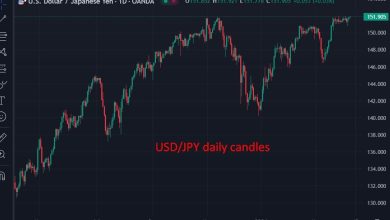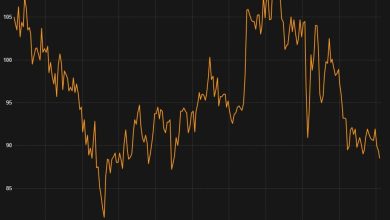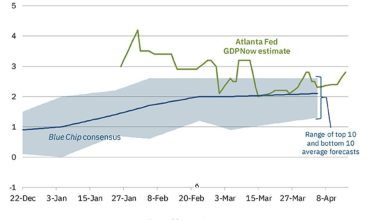Supreme Court Appears Likely to Delay Trump’s Trial on Jan. 6 Charges

- It seems unlikely that Donald Trump will get the expansive presidential immunity he wants.
- But a majority of Supreme Court justices appear ready to hand an immediate victory to the former president.
- It seems likely that judges will further delay a trial over Trump’s efforts to overturn the election.
Donald Trump may not benefit from the widespread immunity he wants.
Still, the Supreme Court justices do not appear likely to quickly reject the former president’s claims, increasing the likelihood that Trump will not face trial for trying to overturn the 2020 election until November.
During Thursday’s oral arguments, the justices repeatedly emphasized the historical weight of the case before them.
But for Trump, the more immediate effect is that the significant issues at stake will likely cause criminal charges against him to be postponed until he wins or loses his next election.
Special counsel Jack Smith wanted the justices to quickly address Trump’s allegations and then take the case to trial, which was originally scheduled to begin last month.
A back-and-forth in oral arguments underscored that enough of the justices would prefer to send the case back to a lower court to determine which of Trump’s actions, as alleged in the indictment, are officially linked to his work.
“I think you have acknowledged, in response to questions from others, that some of the acts charged in the indictment are private, and that you believe some are official,” Judge Brett Kavanaugh told Sauer. “Is it your position then that this analysis should be undertaken, in the first instance, either by the D.C. Circuit or by the district court?
As Kavanaugh suggested, further arguments over the formal and private line between Trump’s actions could fall to U.S. District Court Judge Tanya Chutkan in Washington, D.C., who could be tasked with hearing and ruling on the case.
A delay like that would make it nearly impossible for Smith to try Trump before the November election. If Trump were to beat President Joe Biden, it’s not hard to see how Trump would use his presidential powers to get out of trouble.
Smith’s lawsuits against Trump are the primary means for the former president to deal with the repercussions of his actions aimed at overturning the 2020 election.
John Sauer, Trump’s lawyer, argued that a former president should have absolute immunity for actions that might be only tangentially related to his actual job. He drew his arguments from an earlier Supreme Court case that drew the line on presidential immunity in civil matters.
Supreme Court considers Trump’s immunity request. Jabin Botsford/The Washington Post via Getty Images
Some conservative justices on the Court, particularly Justice Samuel Alito, seemed particularly sympathetic to Sauer’s related point that there should be an extremely high bar for a court or prosecutor to question, after the fact, whether a president was doing really his job when he presented himself. contrary to the law.
Not all of the judges seemed as sold as Alito.
But even Judge Amy Coney Barrett, who seemed skeptical of some of Sauer’s other arguments, suggested that Smith’s team may have to significantly amend the current indictment against Trump if it wants to pursue the case quickly.
Barrett indicated that the special counsel could focus only on actions Trump was taking outside of his job.
Michael Dreeben, who represented the interests of Smith’s team, seemed hesitant to accept such a solution.
“There really is an embedded conspiracy here that had different elements, as the indictment alleges: working with private attorneys to achieve the goals of the fraud and, as I have said before, the petitioner “is used his official powers to try to make his conspiracies more likely to succeed,” Dreeben responded. “We would like to present this as an integrated picture to the jury so they see the sequence and severity of the conduct and why each step occurred.”
Barrett and other judges pressed Sauer and Dreeben to go through line by line some of Trump’s conduct as described in the indictment.
It is possible that the Supreme Court will decide that a more detailed review of Trump’s conduct is best left to a lower court.
Justice Ketanji Brown Jackson made what was almost a last-minute plea to his colleagues, questioning whether the case before them was really the one they wanted to use to draw a definitive line for every future president on what This is exactly an “official act” within the scope of their work.
“If we look at the question presented as broader than that, and say, ‘let’s engage with the official core rather than the core and try to determine the dividing line,’ is that the right vehicle to develop this test ?” » asked Jackson.
But it seems unlikely that Jackson’s colleagues would be receptive to such a view, given the arguments made Thursday and recent history.
In June 2022, Chief Justice John Roberts chastised the court’s other conservative justices for not limiting their ruling in Dobbs v. Jackon only the facts of the abortion rights case before the court. Justice Alito led a 5-4 majority that explicitly overturned Roe v. Wade. Conservative justices expressed similar concerns about Justice Anthony Kennedy’s majority opinion in Obergefell v. Hodges, that there is a national right to same-sex marriage.
Throughout history, judges have used language more radical than the facts of the case before them.
Several conservative justices, including Alito and Kavanaugh, emphasized that they were concerned about more than just Trump’s conduct, as the indictment alleges.
“I appreciate that, but you also understand that we are writing a rule for the ages,” Justice Neil Gorsuch told Dreeben at one point.
Trump would benefit from waiting for such a rule.
Because it would take a long time to develop such a standard and then determine how it applies to him, Trump could effectively avoid prosecution for any post-2020 election violations at the federal level.
businessinsider





